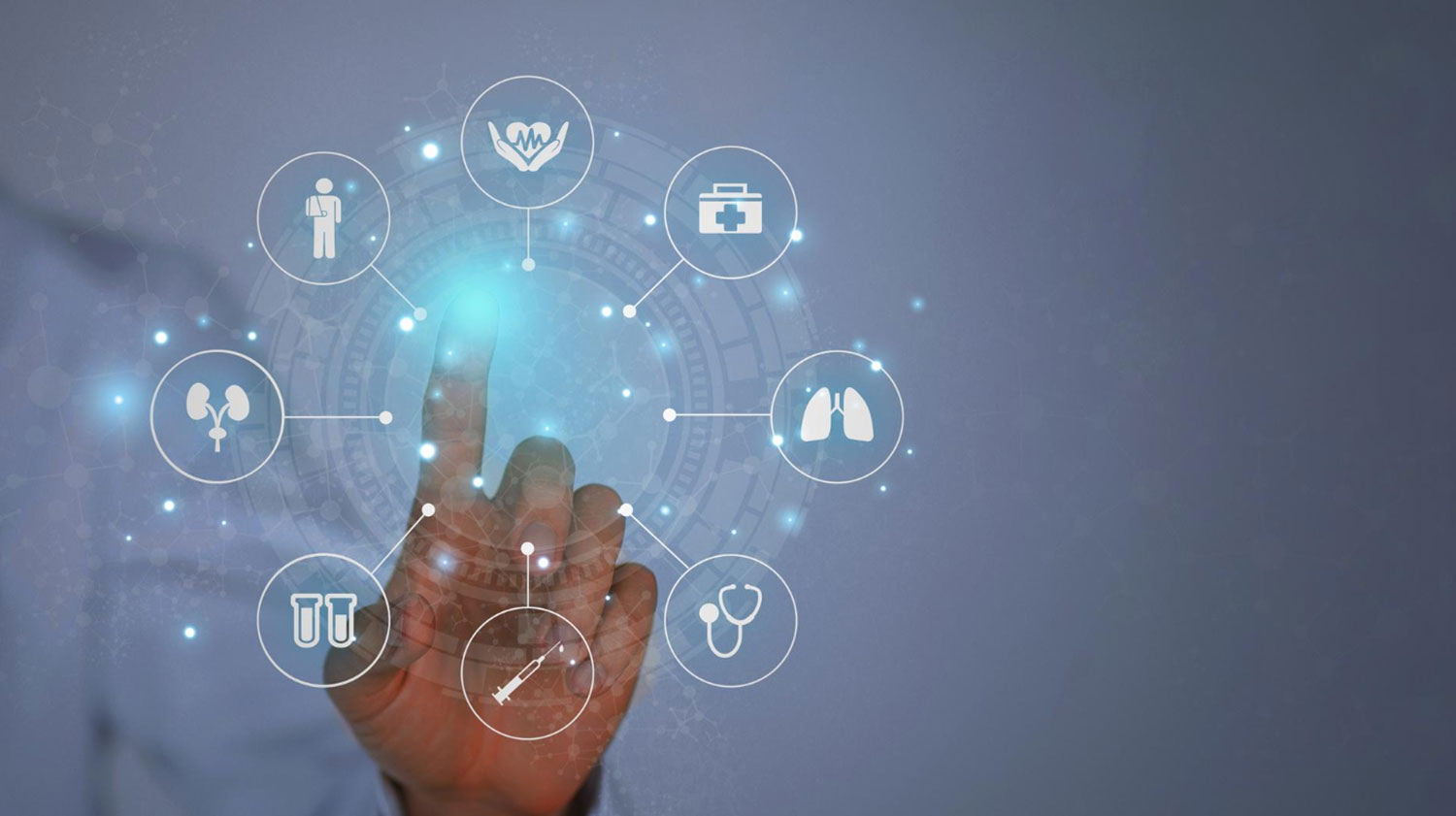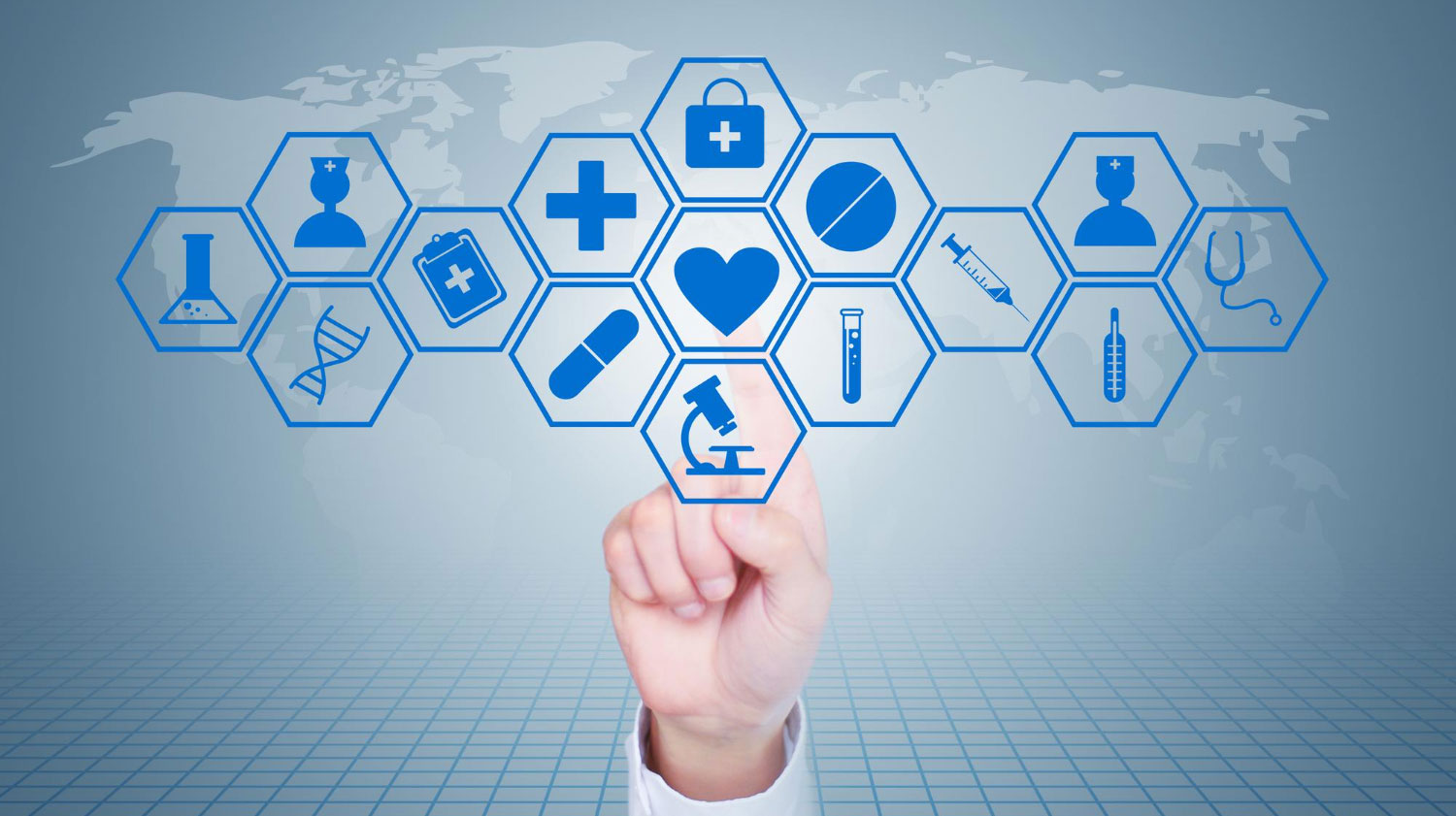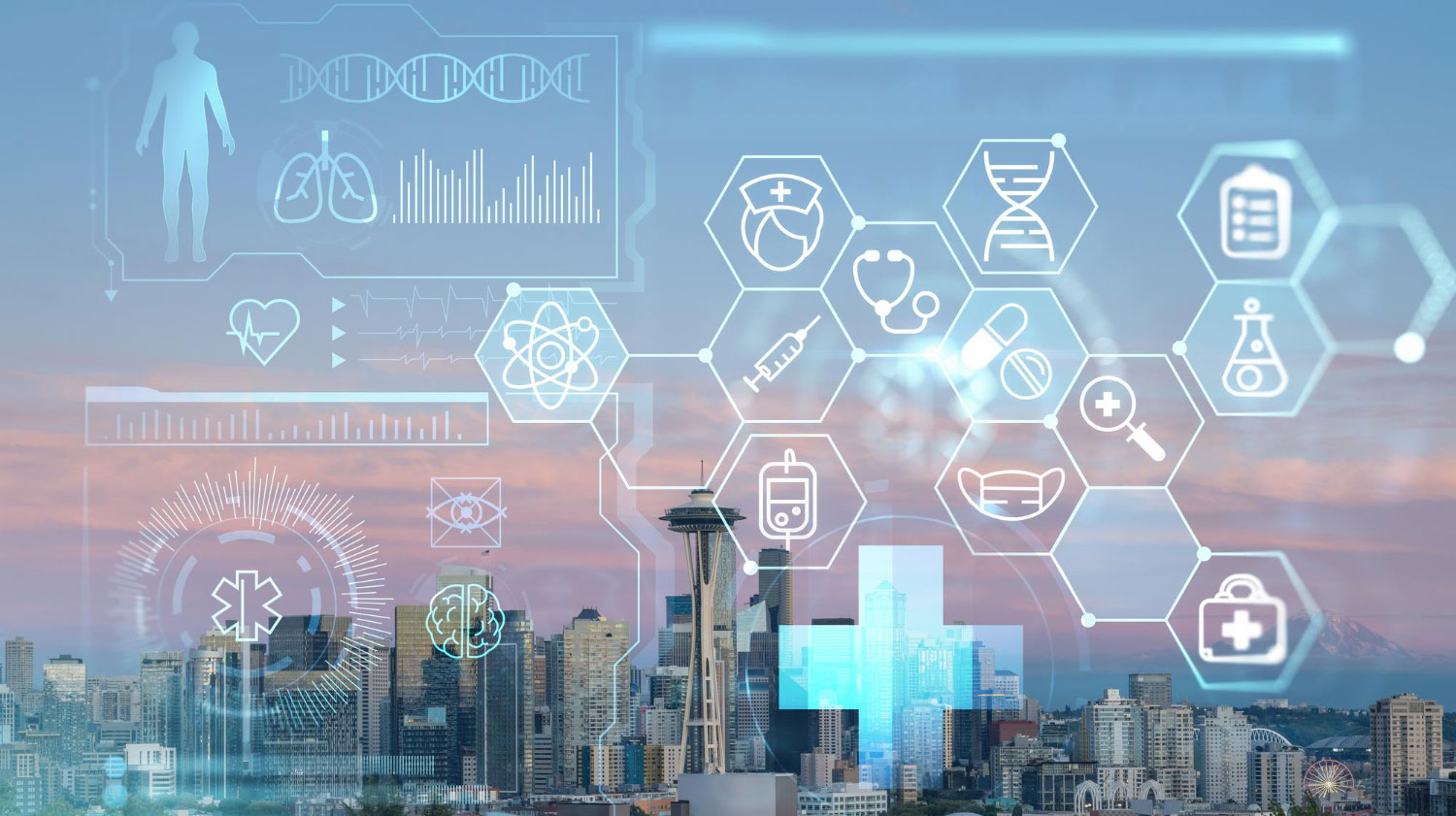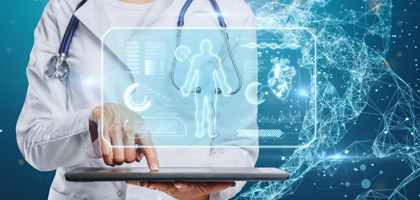
Blog
What is Digital Healthcare Ecosystem?
We recognize that the healthcare ecosystem is a complex and dynamic network that impacts the well-being of communities worldwide. Since our inception in 2007, we have dedicated ourselves to understanding and enhancing this digital health ecosystem through technology and solutions. The healthcare ecosystem includes various stakeholders, such as patients, healthcare providers, insurance companies, reimbursement institutions, pharmaceutical firms, pharmacies, warehouses and manufacturers and regulatory bodies, all interconnected and essential to delivering effective healthcare services. We aim to improve this intricate system by integrating advanced information technology solutions prioritizing patient-centric care.
As we explore the various facets of the healthcare ecosystem, our focus remains on how technology can bridge gaps, enhance communication and streamline processes to deliver superior healthcare outcomes. Through this exploration, we highlight our contributions to setting new standards in healthcare IT, ensuring a healthier tomorrow for all of us.

Understanding the Healthcare Ecosystem
The healthcare ecosystem encompasses a vast network of entities and individuals whose interactions define the landscape of healthcare services. This system comprises various stakeholders, including healthcare providers, patients, insurance companies, pharmaceutical companies and governmental and regulatory bodies. Each plays a critical role in delivering and managing healthcare services, influencing outcomes and the system's effectiveness.
Healthcare Providers
Healthcare providers are at the core of the ecosystem, offering services directly to patients. This group includes hospitals, clinics, private practices and specialized care centers. Providers are responsible for diagnosing, treating and managing diseases and health conditions. Additionally, healthcare providers work closely with country health ministries and regulatory bodies to align on healthcare standards and practices. Advancements in healthcare technology and access to comprehensive patient data significantly enhance their effectiveness.
Patients
Patients are the central figures in the healthcare ecosystem. Their needs and experiences drive the demand for healthcare services and innovations in healthcare. Patient behavior, including adherence to treatment plans and engagement in preventive care practices, heavily influences health outcomes. As the focus on patient-centric care increases, there is a more significant push towards empowering patients with tools and information to participate actively in their healthcare decisions.
Insurance Companies and Reimbursement Institutions
Insurance companies and reimbursement institutions finance or reimburse the cost of healthcare services. They play a critical role in the health ecosystem by setting pricing frameworks, reimbursement rates and coverage policies that affect healthcare delivery. They are increasingly involved in efforts to control costs and improve care quality by promoting preventive care measures and managing the use of healthcare resources effectively.
Pharmaceutical Companies
These companies develop and provide the medications and treatments essential for patient care. The pharmaceutical sector is integral to the healthcare ecosystem, investing heavily in research and development to bring new drugs and therapies to market. These efforts are closely regulated to ensure safety and efficacy, highlighting the importance of a safe regulatory framework within the ecosystem.
Governmental and Regulatory Bodies
Regulatory bodies ensure that the healthcare ecosystem operates under fair and safe conditions. They set standards and policies that govern healthcare providers' practices, the approval of prescribed drugs and the operation of insurance schemes. These bodies are crucial in maintaining population health and safety and ensuring equitable access to healthcare services.
Pharmacies, Warehouses and Manufacturers
In the digital health ecosystem, the roles of pharmacies, warehouses and manufacturers are crucial for ensuring distribution and management safety and efficiency. We enhance these functions with our e-Pharmacy and Pharmaceutical Track and Trace System, branded as DrugXafe as well. Together, these systems create a cohesive and secure network that supports pharmacies and the broader array of stakeholders within the pharmaceutical supply chain. This integrated approach is essential for maintaining drug integrity and encouraging a safe and efficient healthcare environment.

The Dynamics of the Healthcare Ecosystem
A complex balance of collaboration and competition, innovation and regulation, cost containment and resource allocation characterize the interactions among these stakeholders. The healthcare ecosystem must adapt as the global health landscape evolves, driven by demographic shifts, technological advancements and changing patient expectations. These changes are imperative to address the challenges of rising healthcare costs, the burden of chronic diseases and the need for a more sustainable healthcare system that can serve future generations effectively.
The Role of IT in the Healthcare Ecosystem
Information technology (IT) is a core of the modern healthcare ecosystem. It plays a crucial role in enhancing the efficiency, accessibility and quality of healthcare services. By integrating excellent IT solutions into their services and infrastructures, healthcare providers can streamline operations, reduce costs and improve patient outcomes. IT facilitates the seamless exchange of information across different healthcare entities, essential for coordinated care and advanced health analytics.
What is a Digital Healthcare Ecosystem?
A digital healthcare ecosystem represents the next evolution in how healthcare services are conceptualized, delivered and managed, using digital health technology to create a more interoperable, efficient and patient-centered system. This digital health ecosystem is built on the core of information technology and digital health products that bring together data, devices and people to improve health outcomes.
Integration and Interoperability of Digital Health Technologies
The integration and interoperability of technologies are critical in the digital healthcare ecosystem. Though closely related, these terms carry distinct meanings and implications.
Integration, a technical process, is about linking various digital health technologies. By integrating systems such as electronic health records (EHR), mobile health applications and wearable devices, we can create a unified system that ensures a smooth and effective sharing of data within a healthcare setting. For instance, integrating EHR systems with mobile health applications can enhance the usability of the data collected, empowering healthcare professionals to access comprehensive patient history in real-time. This ease of access supports more coordinated care and quicker, more informed decision-making.
Interoperability, on the other hand, addresses a broader challenge: it involves not just linking systems but ensuring that these integrated systems can also exchange data across different healthcare settings and even across different health technologies seamlessly. This requires compatible technology and standardized data formats, protocols to allow for meaningful, effective communication of health information. Interoperability is complex because it demands alignment on legal, ethical and technological fronts across various stakeholders in the digital healthcare ecosystem.

Enhancing Patient Engagement
Digital health services and products are critical in enhancing patient engagement by empowering individuals to manage their health actively. Mobile health apps and wearable devices provide patients with direct access to their health metrics, such as heart rate, activity levels and blood sugar levels, encouraging continuous engagement with their health. This direct interaction facilitates patients' active participation in health services and systems, fostering a more proactive approach to health management. This ongoing engagement helps individuals stay informed about their health status and promotes sustained interaction with healthcare providers, enhancing the overall healthcare experience.
Data-Driven Healthcare
The digital healthcare ecosystem thrives on the vast data generated by connected devices and patient interactions. Using big data analytics and AI, healthcare providers can unlock profound insights into patient health trends, disease patterns and treatment outcomes. These insights facilitate personalized healthcare, where treatment plans are tailored to individual and health histories, significantly improving the effectiveness of interventions. Furthermore, predictive analytics can forecast outbreaks, patient admissions and other critical events, allowing healthcare systems to allocate resources more efficiently and effectively.
Collaborative Care Networks
Digital ecosystems show collaborative networks where healthcare professionals can collaborate on patient care regardless of their physical location. Physicians can easily be consulted on complex cases through digital communication platforms, ensuring that expert advice is incorporated into patient treatment plans without delays. This collaborative approach is also extended to researchers and policymakers who can utilize aggregated and anonymized data from the health ecosystem to drive public health decisions and medical research. If you want an excellent example, look at our DMEK-Track product.
Regulatory and Security Aspects
As digital ecosystems expand, they bring about significant data privacy and security concerns. Regulatory frameworks such as the General Data Protection Regulation (GDPR) in the EU and the Health Insurance Portability and Accountability Act (HIPAA) in the U.S. ensure that patient data is handled securely and with the utmost respect for privacy. Compliance with these regulations is fundamental in building trust within the digital healthcare ecosystem and ensuring long-term sustainability.

But Why is a Digital Healthcare Ecosystem Important?
The importance of a digital healthcare ecosystem lies in its potential to improve healthcare delivery drastically. It enables real-time, data-driven decision-making, enhances patient engagement through digital platforms and facilitates personalized healthcare. The digital healthcare ecosystem also supports population health management by providing valuable data insights that help in disease surveillance and management.
How We, As the Tiga Healthcare Technologies, Enhance the Digital Healthcare Ecosystem?
Our products and solutions significantly enhance the digital healthcare ecosystem. We understand technology's crucial role in transforming healthcare and our diverse range of products exemplifies our devotion to integrating advanced technology solutions to improve health outcomes, patient safety and system efficiency. We are almost hearing you asking why:
Seamless Interoperability Across the Healthcare Ecosystem
FHIR Stack
The FHIR Stack is a corner of healthcare IT infrastructure, enabling seamless interoperability between various health information systems. Utilizing the FHIR (Fast Health Interoperability Resources) protocol, an HL7 standard, the FHIR Stack ensures that electronic health records can be shared across systems without the usual compatibility issues. This centralized solution provides a strong framework for interoperating diverse health applications, facilitating better data management and accessibility.
Enterprise Master Patient Index (EMPI)
The Enterprise Master Patient Index (EMPI) addresses critical aspects of data integrity and patient identification across the digital healthcare ecosystem. EMPI implements rigid processes, governance, policies, standards and tools to manage critical data effectively. By creating a single, consistent point of reference for patient identities, EMPI ensures that healthcare providers can access accurate records across different systems, thus improving the reliability of patient data throughout the healthcare ecosystem.
Terminology Server
On another front, the Terminology Server enhances interoperability by standardizing the medical terminology used across health systems. It supports the construction and management of clinical terminologies, aligning them with national and international standards. The consistent use of standardized terms across digital health records ensures that all entries are correctly encoded, facilitating more transparent communication and more reliable data exchange across disparate health IT systems.
Health Information Exchange (HIE) Viewer
It focuses on the real-time needs of healthcare providers by facilitating secure access to comprehensive patient data. It lets healthcare professionals quickly view patients’ electronic health records, including current health status, medications, treatments, diseases, allergies and laboratory results. By providing instant access to this critical information, the HIE Viewer is essential in enhancing patient care quality, safety and efficiency, thereby supporting the overall goals of interoperability within the healthcare ecosystem.

Empowering Patients and Providers
Our Personal Health Record (PHR) system empowers patients by providing them with 24/7 access to their own health data. This accessibility promotes self-management of health conditions and ensures that patients can make more informed decisions about their care. For healthcare providers, immediate access to a patient’s comprehensive health records facilitates better clinical decisions, especially in emergencies where quick access to patient data can be lifesaving.
Also, the Hospital Information System (HIS) has been developed to manage and enhance clinical and administrative workflows in healthcare facilities. This system facilitates all clinical processes and workflows, including working, accessing, modifying and storing patients' electronic health records, ensuring seamless digital health ecosystem processes. Additionally, the system ensures efficient performance of all administrative processes, providing effective management and coordination within healthcare institutions.
Using AI for Advanced Insights
ShareMind, our AI platform, harnesses machine learning and data analytics to provide researchers and healthcare providers with powerful tools for developing personalized health approaches and advancing population health research. By facilitating the secure analysis of sensitive health data, ShareMind drives innovation in treatment methodologies and improves outcomes by identifying patterns that might not be visible to the human eye.
Driving Decisions Through Data
Lastly, our Health Analytics & Reporting product provides critical insights that help healthcare authorities and providers make informed decisions. By analyzing healthcare delivery data, these tools help optimize the allocation of resources and improve service delivery, ultimately enhancing the effectiveness and efficiency of healthcare systems.

Through these integrated solutions, we enhance every single component of the healthcare ecosystem and facilitate a more connected and responsive digital health environment. Our products address various aspects of healthcare management, from ensuring the safety of pharmaceutical products to empowering patients with access to their health data and providing valuable insights through advanced analytics. This comprehensive approach ensures that we contribute significantly to advancing the digital healthcare ecosystem, making healthcare more accessible, efficient and effective.
Let’s shape the future together, as always!









